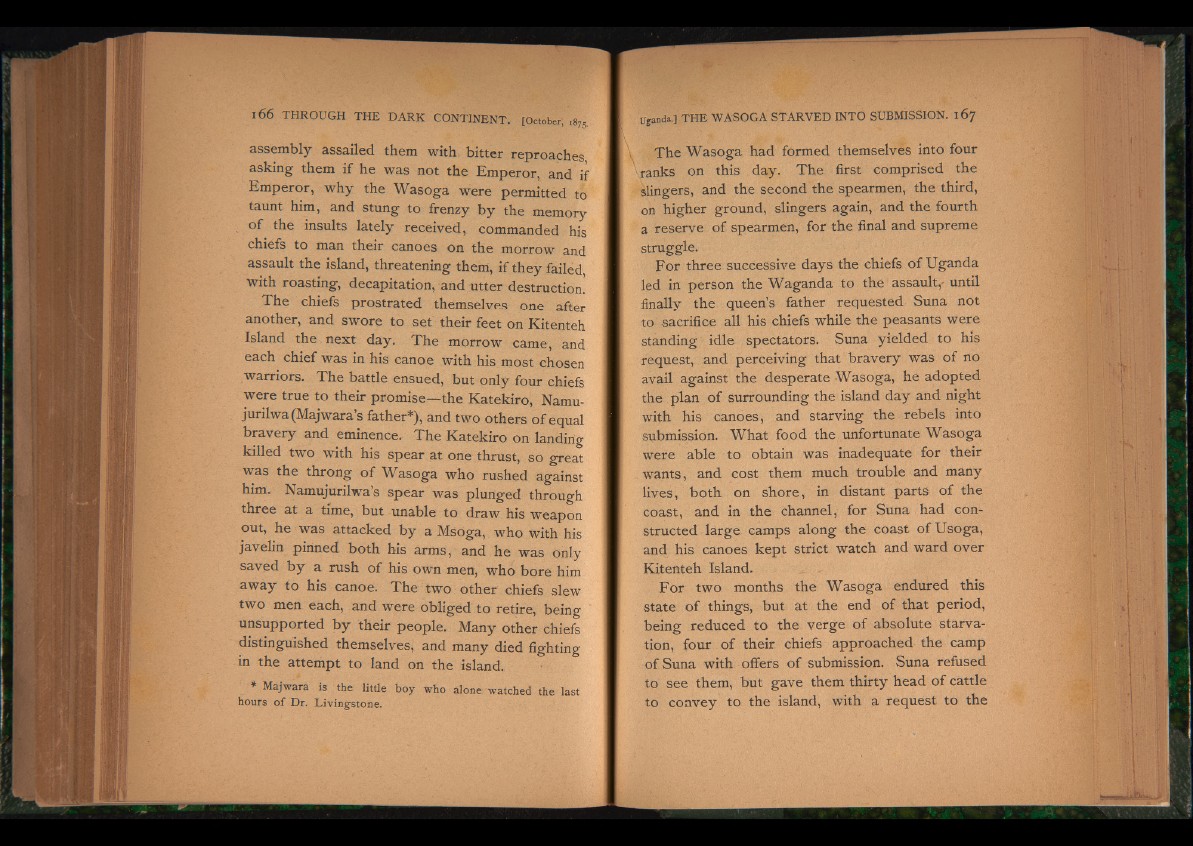
assembly assailed them with bitter reproaches,
asking them if he was not the Emperor, and if
Emperor, w h y the Wasoga were permitted to
taunt him, and stung to frenzy b y the memory
o f the insults lately received} commanded his
chiefs to man their canoes on the morrow and
assault the island, threatening them, if they failed,
with roasting, decapitation, and utter destruction!
The chiefs prostrated themselves one after
another, and swore to set their feet on Kitenteh
Island the next day. T he morrow came, and
each chief was in his canoe with his most chosen
warriors. The battle ensued, but only four chiefs
were true to their promise— the Katekiro, Namu-
jurilwa (Majwara’s father*), and two others o f equal
bravery and eminence. The Katekiro on landing
killed two with his spear at one thrust, so great
was the throng o f Wasoga who rushed against
him. Namujurilwa’s spear was plunged through
three at a time, but unable to draw his weapon
out, he was attacked b y a Msoga, who with his
javelin pinned both his arms, and he was only
saved b y a rush o f his own men, who bore him
aw a y to his canoe. The two other chiefs slew
two men each, and were obliged to retire, being
unsupported b y their people. Many other chiefs
distinguished themselves, and many died fighting
in the attempt to land on the island.
* Majwara is the little boy who alone watched the last
hours of Dr. Livingstone.
The Wasoga had formed themselves into four
ranks on this day. The first comprised the
slingers, and the second the spearmen, the third,
on higher ground, slingers again, and the fourth
a reserve o f spearmen, for the final and supreme
struggle.
For three successive days the chiefs o f Uganda
led in person the Waganda to the assault,- until
finally the queen’s father requested Suna not
to sacrifice all his chiefs while the peasants were
standing idle spectators. Suna yielded to his
request, and perceiving that bravery was o f no
avail against the desperate Wasoga, he adopted
the plan o f surrounding the island day and night
with his canoes, and starving the rebels into
submission. What food the unfortunate Wasoga
were able to obtain was inadequate for their
wants, and cost them much trouble and many
lives, both on shore, in distant parts o f the
coast, and in the channel, for Suna had constructed
large camps along the coast o f Usoga,
and his canoes kept strict watch and ward over
Kitenteh Island.
Fo r two months the Wasoga endured this
state o f things, but at the end o f that period,
being reduced to the verge o f absolute starvation,
four o f their chiefs approached the camp
o f Suna with offers o f submission. Suna refused
to see them, but gave them thirty head o f cattle
to convey to the island, with a request to the